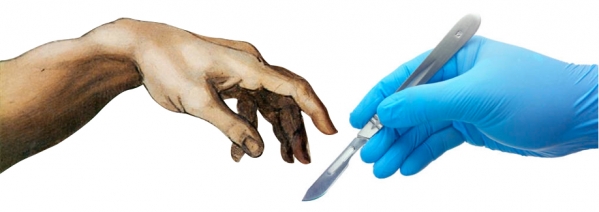AI- and Robotics-enabled Systems, a Forward Leap Into Real Life Applications
I had the privilege of being the International Guest Speaker at the School of Computing Technologies on Tuesday, 13 June 2023. It was an honour to present a seminar as a fellow OpenInnoTrain Secondee.
I would like to express my gratitude to Professor Fabio Zambetta, the Associate Dean of Artificial Intelligence in the School of Computing Technologies, for the warm welcome and introduction. I also would like to thank the entire RMIT team that welcomed me. The event provided a fantastic platform to discuss cutting-edge research and innovative ideas in the field of engineering and science.
International Guest Speaker: Professor Filippo Sanfilippo, Faculty of Engineering and Science, University of Agder, Norway | OpenInnoTrain Secondee
Welcome and introduction: Professor Fabio Zambetta, Associate Dean, Artificial Intelligence in the School of Computing Technologies, RMIT University, Melbourne
Reflection:
In this seminar, Professor Filippo Sanfilippo shared some of his work in Industry 4.0 and 5.0, specifically concerning human-robot collaboration and teaming. Filippo says the fifth revolution of industrial automation is occurring with the convergence of artificial intelligence and the presence of sensors everywhere - on and around the machine and on humans through wearables, providing the possibility for machines and humans to share workspaces and to work hand in hand.
Obstacles to this revolution include that robotics producers currently utilise proprietary software with limitations in usability however, Filippo says that opensource middleware used as a bridge between a proprietary server and a user program provides a way forward. The concept of 'digital twins' where real labs and digital labs are connected is an another trend that will enable the evolution of Industry 5.0.
During the seminar Filippo spoke about the challenges for human-robot collaborations including the trade-off between control and mechanical/software design. He also shared case studies of human-robot interaction and collaboration with regards to applications for intelligent health, along with the work his team has progressed around potential applications for search-and-research collaborations.
Following the seminar, Professor Zambetta shared his thoughts on the seminar and Professor Sanfilippo’s OpenInnoTrain secondment to RMIT Melbourne:
We are very happy to be hosting Professor Sanfilippo at RMIT and we would like to thank OpenInnoTrain for providing us with a new collaboration opportunity.
Fililppo's expertise in robotics, mechatronics and control is complementary to the Ai Discipline expertise in machine learning (reinforcement learning), automated planning, evolutionary computing and AR/VR simulation.
More opportunities for collaboration in the School also include potential opportunities with staff whose expertise lies in data science as well as IoT and smart sensing.
Seminar participant, Jenny Hedley, also shared:
Seeing how agile and responsive the robot snake is compared with robot hands/grabbers is an eye opener! As an avid hiker I imagine how useful this would be in wilderness rescue situations when someone triggers an emergency transponder.
A recording of the seminar is available to view here.
Acknowledgments:
OpenInnoTrain Project, is a global network of researchers and industry practitioners across Europe and Australia for promoting the translation of research between university-industry through cooperation and Open Innovation in the sectors of: FinTech, Industry 4.0, CleanTech, FoodTech. This project has received funding from the European Union's Horizon 2020 research and innovation programme under the Marie Skłodowska-Curie grant agreement No 823971.
RMIT University, Melbourne, Australia - Global Business Innovation Enabling Impact Platform (Director, Professor Anne-Laure Mention).
University of Agder
Improved Barnacles Movement Optimizer (IBMO) Algorithm for Engineering Design Problems
Exciting News!
I am thrilled to announce the publication of our paper titled "Improved Barnacles Movement Optimizer (IBMO) Algorithm for Engineering Design Problems" in the Proceedings of the 22nd International Conference on Artificial Intelligence and Soft Computing (ICAISC 2023) held in Zakopane, Poland.
I am grateful to all my co-authors for their incredible contributions! Syed Kumayl Raza Moosavi presented the paper at the conference and received very good and constructive feedback!
- Syed Kumayl Raza Moosavi, Muhammad Hamza Zafar, Seyedali Mirjalili and Filippo Sanfilippo. Improved Barnacles Movement Optimizer (IBMO) Algorithm for Engineering Design Problems. In Proceeding of 22nd International Conference on Artificial Intelligence and Soft Computing (ICAISC 2023), Zakopane, Poland. 2023, –. PDF
Project funded: Beyond the Classroom: Virtual Reality, Augmented Reality, and Haptics for Enhanced Surgical Training and Education (ImmersiveSurgicalEdu)
Exciting News!
I am thrilled to share that our groundbreaking research project, "Beyond the Classroom: Virtual Reality, Augmented Reality, and Haptics for Enhanced Surgical Training and Education" (ImmersiveSurgicalEdu), has been funded.
Our goal is to combine the capabilities of virtual and augmented reality (VR, AR) technologies with low-cost wearable haptic devices to create a hapto-audio-visual hands-on laboratory environment.
Under the Erasmus+ Cooperation Partnerships in Higher Education KA220-HED call, our initiative earned a significant grant of 250,000 Euros. We appreciate the support and acknowledgement of the significance of our research.
The project will be led by the University of Agder in Norway.
I would also like to extend my gratitude to our project partners: Kaunas University of Technology, Lithuania; the University of Siena, Italy; and the Lithuanian University of Health Sciences, Lithuania.
Together, we will collaborate and push the boundaries of surgical education.
Filippo Sanfilippo

 Algorithm for Engineering Design Problems-323_L.png)
